Health
Harkins Named Corrigan Family Assistant Athletics Director for Leadership and Mental Performance
By: Justin Lafleur Story Links HANOVER, N.H. – Filling an important role that has a broad impact across all student-athletes, Lorna Harkins has been named the Corrigan Family Assistant Athletics Director for Leadership and Mental Performance, as announced by Dartmouth Athletics and Recreation on Wednesday. Harkins comes to Dartmouth from the San Diego Wave Futbol […]
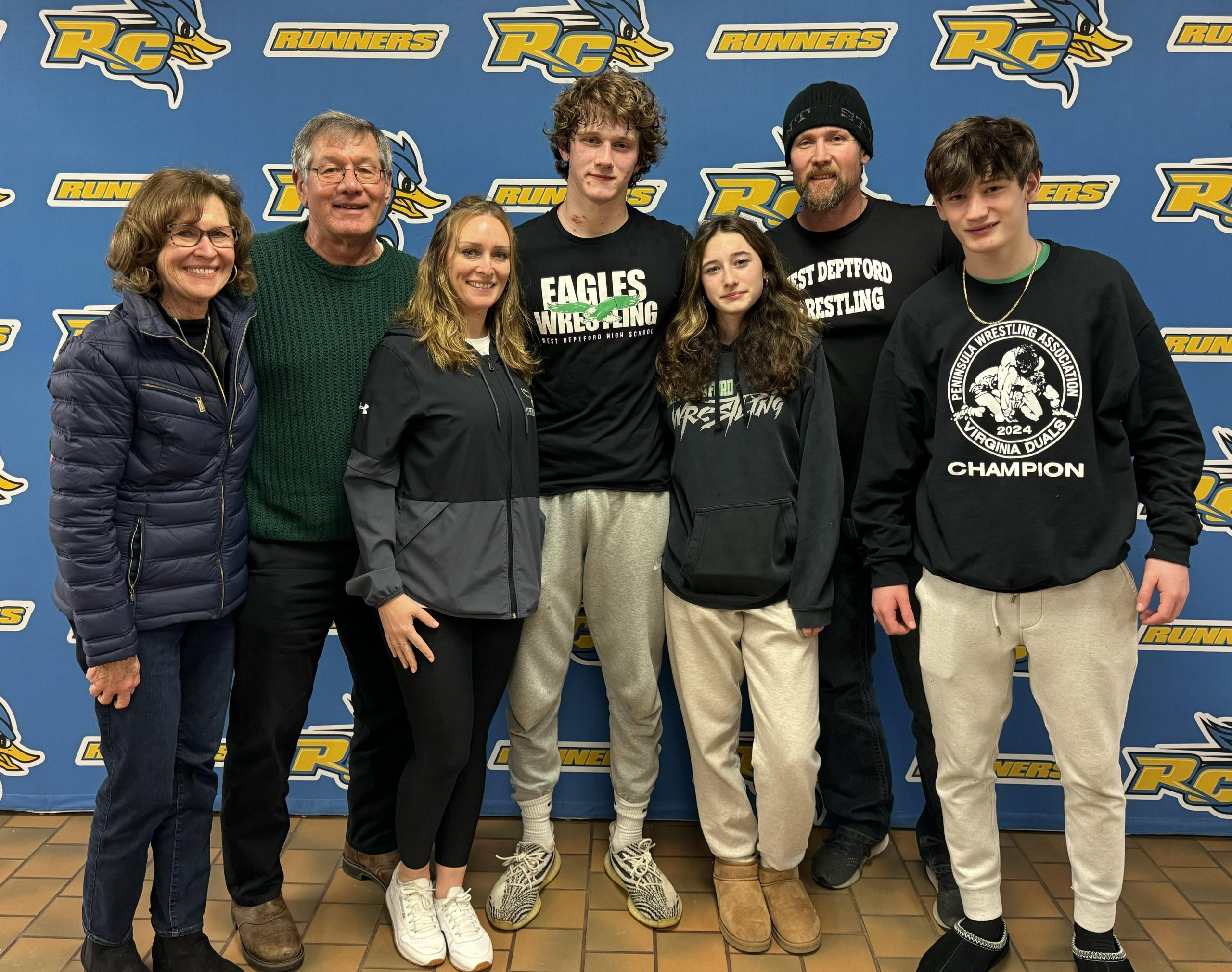
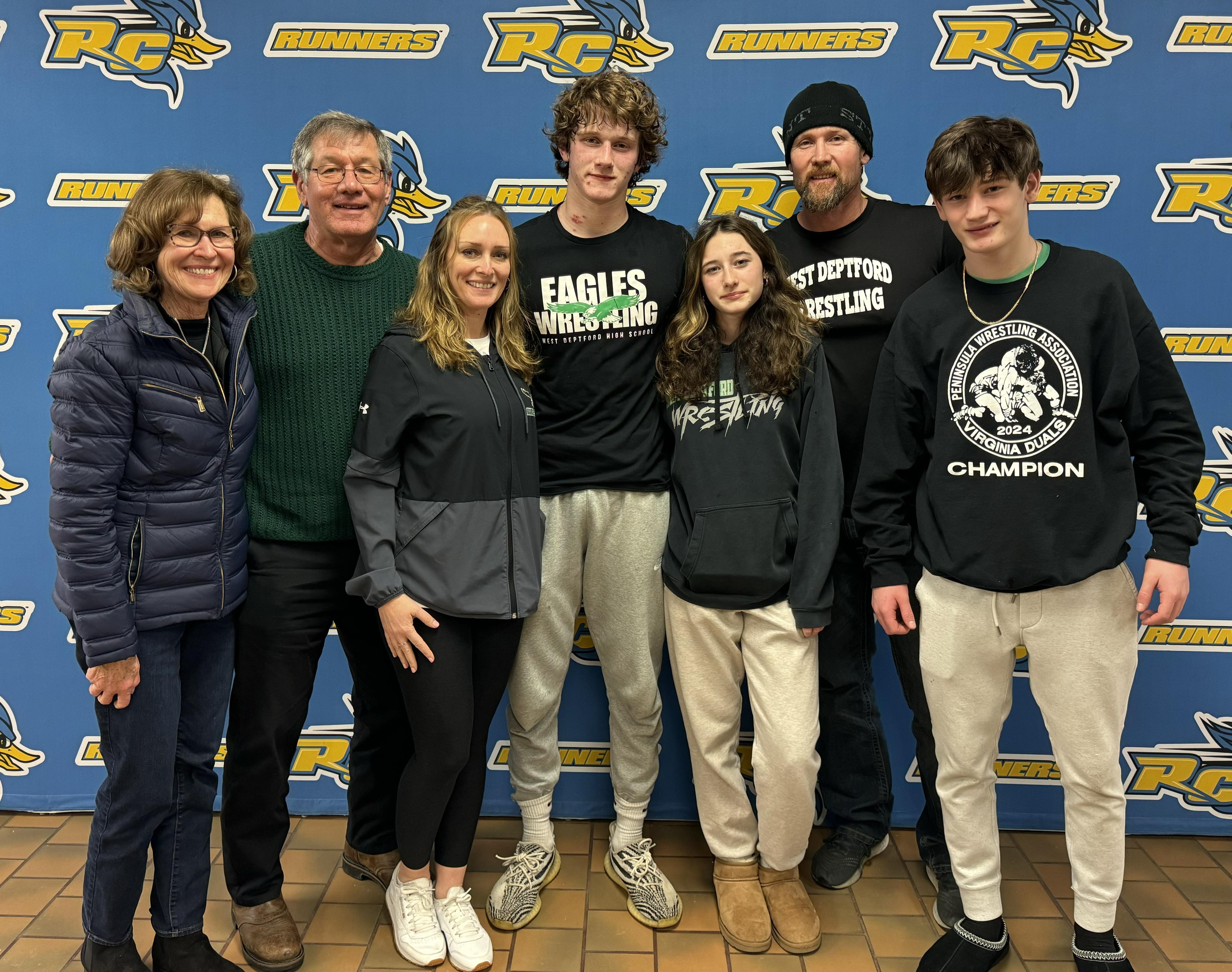

HANOVER, N.H. – Filling an important role that has a broad impact across all student-athletes, Lorna Harkins has been named the Corrigan Family Assistant Athletics Director for Leadership and Mental Performance, as announced by Dartmouth Athletics and Recreation on Wednesday. Harkins comes to Dartmouth from the San Diego Wave Futbol Club out of the National Women’s Soccer League where she played a major role in athletes’ mental performance and wellbeing.
“We are thrilled to welcome Lorna Harkins to the Dartmouth as a distinguished leadership and mental performance expert,” said Ian Connole, Senior Associate Athletics Director for Peak Performance. “With a proven track record working alongside elite athletes, and a comprehensive background in sport psychology, education and holistic development, Lorna is uniquely equipped to enhance the performance, resilience and well-being of our student-athletes, coaches and teams. Her ability to connect, understand and elevate others will undoubtedly make a positive impact on our community.”
“Dartmouth has a rare mix of tradition, excellence and curiosity,” said Harkins. “That deeply aligns with my own commitment to ambition, purpose and growth. I was drawn to the opportunity to be part of something meaningful and to contribute to a program that prioritizes both performance and the development of the whole person. Supporting student-athletes during such a pivotal time in their sport, academics and lives is a true privilege.”
Austin Driggers, Executive Associate Athletics Director for Peak Performance shared his perspective on the importance of Harkins’ position.
| WHAT THEY’RE SAYING |
| “Lorna is incredible at supporting athletes, whether they’re navigating transitions, facing tough moments or striving to become the best version of themselves. Her work helps build the mindset needed to handle high-pressure situations, overcome challenges and stay focused when it matters most. She understands the mental and emotional demands of performing under pressure and she leads with kindness and joy, creating a supportive environment where athletes can truly learn and grow!”
— Naomi Girma, Defender, Chelsea Women and U.S. Women’s National Team |
| “Working with Lorna helped me develop the mindset to push to the next level. She helped me have trust in myself that I could handle any obstacle and challenged me in ways I didn’t know I could be challenged to make progress. Her ability to simplify the mental side of the game and build trust makes her stand out. She helps you feel understood, more prepared and she genuinely cares. Our work together is something I’ll be forever grateful for.”
— Alessia Russo, Forward, Arsenal FC and England Women’s National Team |
| “Lorna’s work helps you evolve and grow to be your best. It positively changed my way of thinking, helped me balance everything professionally and personally, and I learned to be in the moment more than ever before. I performed better on the pitch with more confidence, and I also performed better in my life with more clarity and joy. I am so thankful for the time I got to know her and work with her.”
— Jackie Groenen, Midfielder, Paris Saint German (PSG) and Netherlands National Team |
| “Lorna understands the demands we face as players and people and how it connects to performance. She is approachable, grounded and someone you can genuinely trust. Her work helps you reset and move forward quickly which is essential for performing under pressure day in and day out. Having her in our environment elevated us individually and as a team. As a captain, having Lorna as a sounding board throughout the highs and lows of a season was massive. She consistently goes above and beyond to support your growth. Dartmouth student-athletes are incredibly lucky to have her!”
— Kailen Sheridan, Goalkeeper, San Diego Wave FC and Canadian Women’s National Team |
| “I’ve never seen someone in her role be so trusted and embraced across an entire program the way that Lorna is! She operates at an exceptionally high level in her role to make that happen, which allows her to truly support the human being behind the performance. She also understands what it means to lead, and what it means to be led. That makes her incredibly effective across a team. She redefined what a mental performance coach could be in our environment. Lorna brings a rare combination of credibility, care and clarity. She makes everyone around her better. She’ll be a real asset to Dartmouth.”
— Landon Donovan, former U.S. Men’s National Team and Head Coach |
| “In my two years working with Lorna, I saw firsthand the impact of her leadership. Dartmouth isn’t just gaining a highly skilled mental performance coach, but they’re also gaining someone who brings people together, fosters trust and raises the psychological awareness of an entire program. Lorna understands both the science of human behavior and the art of supporting high performers. Her system-wide approach to mental wellness and performance ensures that athletes, coaches and staff are prepared to show up as their best selves every day.”
— Dr. Brett Haskell, Director, Mental Health and Mental Performance, National Women’s Super League |
| “Lorna brings high levels of professionalism, perspective and innovation to her work. She has an exceptional ability to collaborate and connect across different areas of a team, supporting others navigating complex challenges in demanding situations. This is matched by her strategic understanding of how mental performance fits into the broader culture of high performance. She will no doubt bring the same excellence in her work to Dartmouth!”
— Jill Ellis, Chief Football Officer at FIFA |
“Thanks to the generosity of Fritz Corrigan ’64 and his family, the Assistant Athletics Director for Leadership and Mental Performance is an incredibly unique position in college athletics,” he said. “Lorna’s mental performance expertise, paired with a deep understanding of how to thrive in high performance environments, uniquely positions Dartmouth Peak Performance (DP2) to provide proactive mental training and leadership development for our varsity teams.”
Harkins assumes an important student-athlete facing role, impacting the entire athletics department.
“In addition to her impact on performance, Lorna’s role is vital to the primary prevention of mental health concerns for Dartmouth student-athletes,” said Dr. Mark Hiatt, DP2’s Director of Sport and Counseling Psychology. “This includes helping students develop psychological skills for resilience through the ups and downs of sport, managing the pressures of competition and academics, as well as fostering healthy team environments in which students can flourish. I am thrilled to have her as a teammate.”
Dartmouth Athletics supports the full spectrum of student-athlete needs — from mental health to mental performance — through two specialized service areas: Sport and Counseling Psychology, and Leadership and Mental Performance. By ensuring a foundation of mental health care is in place, this structure allows professionals like Connole and Harkins to focus their expertise on team and culture building, resilience and mental skills training through targeted support for individuals, groups and staff.
“After meeting the Dartmouth Peak Performance staff, I felt excited about the opportunity to work alongside other mental performance coaches, psychologists and dedicated professionals within a nationally-respected DP2 program,” said Harkins. “Throughout this process – meeting student-athletes, coaches and department leaders – I knew I wanted to be part of this community.
“I hope to contribute in a way that builds on the strong foundations already in place, supports others and helps student-athletes and teams be at their best.”
While with the San Diego Wave (2021–2024), Harkins built and delivered the club’s mental performance program in its expansion year. She established the structure and delivery of psychological services for athletes and sporting staff. Her work supported players through key performance moments, transitions and long-term development, while also contributing psychological expertise to a multidisciplinary performance staff.
Before her time in San Diego, Harkins led the creation of the mental performance and wellbeing system at Manchester United Women (2019–2021), spanning both the First Team, U21 Academy and Youth Academy teams. As the program’s founding Performance and Wellbeing Coach, her work became foundational to the team’s evolution and psychological approach during a period of rapid growth.
“Lorna is an incredibly skilled leadership and mental performance practitioner who emerged as the ideal fit for Dartmouth,” said Connole.
Harkins earned her master’s degree in Sport and Exercise Psychology from Manchester Metropolitan University, where her work focused on the mental and emotional demands of elite athletic environments. She also holds a postgraduate degree in Teaching, Physical Education and bachelor’s degree in Sport Science, where she began her career coaching and teaching young athletes. Her academic foundation is matched by a decade of applied experience across youth, education and professional sport systems.
Health
How volleyball helped UC Irvine's Ofure Iselen step into her confidence
Story Links (This story was originally published on ucirvinesports.com) Journeys. Whether it be starting school or a new hobby, everyone in life goes through them – and the ups and downs that come along the way. The thing about journeys is they feel long while they’re happening but when you look back, it really went by […]
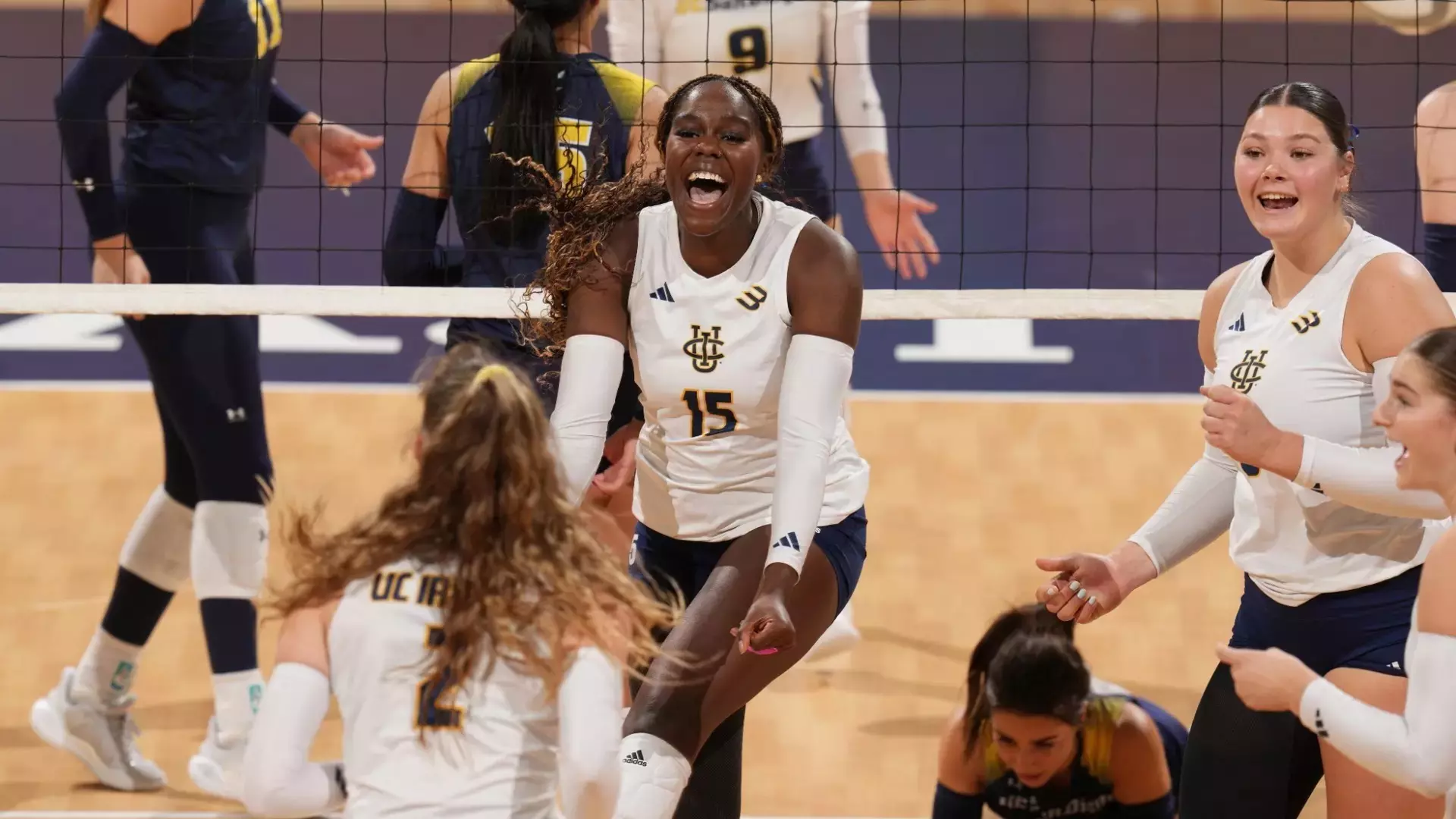

(This story was originally published on ucirvinesports.com)
Journeys. Whether it be starting school or a new hobby, everyone in life goes through them – and the ups and downs that come along the way.
The thing about journeys is they feel long while they’re happening but when you look back, it really went by in a flash. Only when you take a step back and look at your journey can you see the highs and lows and realize how it was all worth it. This is how senior Ofure Iselen would describe her time at UC Irvine as a member of the women’s volleyball team: a journey.
“I would describe it as a journey. I know it’s cliche, but it flew by so fast. I can’t even wrap my head around that it’s done. I would just describe it as a roller coaster. There were the highest of highs and there were the lowest of the lows.”
Iselen’s volleyball career had an unexpected starting point. As her mom wanted her and her siblings to stay active, she was involved with multiple sports growing up. However, it was actually her friend who convinced her to try out for a volleyball team.
“Once I got to middle school, I made my friend try out for the basketball team and then she made me try out for the volleyball team. So, I was just playing middle school volleyball, nothing serious. Then once I got to high school, my mom was like, okay, you have to pick one to really get serious about.”
Since the volleyball season started in the fall before basketball, Iselen’s high school athletic career began with spikes instead of layups, and the rest is history. She made varsity her freshman year and enjoyed the experience. She had found her sport of choice.
Having only started playing competitive volleyball her freshman year of high school, Iselen had some catching up to do, but that didn’t stop others from recognizing her potential. During her high school season, a club director approached her and asked about joining their club volleyball team. Iselen was immediately interested as it would help her grow and they saw potential in her ability to play at the collegiate level.
Iselen put in the work and eventually schools started calling. When it came time to commit, UC Irvine felt like the right fit.
“I had heard of UC Irvine. Some of my friends’ older siblings went there so I was familiar with the school. It was really pretty, and it was not too far from home (the Bay Area). Also, UCI is a really well-known school and that degree holds a lot of weight, so I felt I was getting the best of both worlds. I would get to live out my dreams of playing Division I volleyball while also getting a degree that could push me further after I’m done with volleyball.”
Her freshman season was all about learning and adjusting to the college life. At the advice of her coaches, and coming off an early injury, she focused her efforts in the weight room and learning the ins-and-outs of being a Division I student-athlete.
“My freshman year, I didn’t have many expectations. Coach Ashlie (Hain) told me when I first came in to get serious in that weight room because it would help me a ton. I took that to heart, and I made sure that the weight room was my best friend. Being in the weight room seriously and trying to find that [improvement], and then senior year breaking into that starting lineup was huge for me. It felt like my whole journey kind of meant something and all my hard work didn’t go to waste. I was happy the way we ended, and I couldn’t have asked for a better senior season.”

Iselen bided her time and put in the work to continually improve. She played sparingly her first two seasons with her playing time increasing her junior year, but it wasn’t until her senior season when she earned the opportunity to be in the starting lineup. That doesn’t mean there weren’t still a few bumps along the way in her journey. While she began the season in the starting lineup, by the end of the second preseason tournament, Iselen found herself back on the bench. It was a mental battle as this was her senior year and there was no next season.
“It was probably the biggest challenge mentally and emotionally that I had to face because before it was always like you have next year to try again or get better, but getting benched during preseason of my senior year, I was like there is no next year, right? It was more of a mental challenge than it was a physical challenge because I felt like I was there physically, but mentally I couldn’t perform. I’ve never had to deal with my mental health throughout sports. I was always a pretty positive person. So, when my mental wasn’t there, it’s like, how do you get back to believing in yourself? How do you get back to who you are as a person and as a player?”
Still, Iselen persevered and found her way back into the lineup during the beginning of conference play. From there, she continued to play well, helping lead the Anteaters to a winning record, the program’s first season sweep of Hawai’i and an appearance in the Big West Championships. She ended her senior season ranked first in the Big West in blocks per set (1.24), while averaging 1.21 kills per set and making the Big West Fall All-Academic team.
Iselen looks back on her career fondly and will always cherish the people she met and memories she made with UCI volleyball.
“I’ve met so many amazing people at UCI that I know I’m going to have in my life forever. I never understood when people said that when they come to college, they find their forever people, but I truly did. I’m so appreciative for this school. When I was a kid out of high school, Coach Ashlie took a chance on me because I had only been playing for a few years and I’m so grateful that I was given the opportunity to showcase who I am, not just as an athlete, but as a person too.”
Off the court, Iselen spent a large amount of time with the Student-Athlete Advisory Committee (SAAC) and helped found the Black Student Athlete Alliance (BSAA) at UCI. With her involvement in these organizations and her experience as a student-athlete, a new position opened up that allowed Iselen to remain with UCI Athletics.
After graduating earlier this year with a degree in Political Science (she will walk this weekend), Iselen has served as the Student Athlete Development Coordinator the past two quarters. Her experience and relationships she built at UCI has helped her understand the needs of student-athletes and to plan events and workshops that cater to their interests.
“I work a lot with career development. Having former collegiate athletes come back, from all different sports and schools, and just kind of talk to our student athletes about life after sport and helping them with that transition.
“I feel like I have a unique experience because I’m still in it. A lot of my friends are still student-athletes. I just take their feedback of the things that they feel we’re lacking, and I have the ability to bring those things to life.”
After graduation, Iselen plans to take a gap year and then pursue her MBA. Her plan to become a marketing executive hasn’t changed.
“Coming back from the Black Student Athlete Summit (in 2023), and talking to different marketing executives there made me realize that is what I want to do, so I’ve just been growing in that area too.”
Iselen’s time at UCI wasn’t necessarily a typical one, coming in after COVID, getting a late start in the sport to becoming a key starter as a senior, to continuing to assist student-athletes after her athletic career ended, she always sees the growth in her opportunities and her work. While her journey at UC Irvine has come to a close, her next journey is just getting started. Iselen has no regrets and will forever cherish being an Anteater.
“Just going through this journey – this was such a unique experience that I was gracious to have. Going on the journey alongside people you build a bond with can’t be replaced, they’ve seen you when you were at your lowest and they were the ones that picked you up and carried you through. This is something that you definitely can’t do alone. Finding that community and finding those people who I was able to lean on when I needed to, and then, when it was their turn, for me to be there for them. You create that bond that just lasts for a long time, and I feel like that’s the thing that I probably take away the most is those relationships. I’ve definitely grown and changed a lot since my freshman year. Looking back and seeing videos of myself from four years ago, I’m like, wow, this person has come a long way.”

Health
Natasha Hastings and Michelle Carter inducted into NYAC Hall of Fame
Not possible without you! Our journalism is only possible with support from you, our readers. The news mainstream media just doesn’t cover. Racial justice journalism since 1909. Sign up for our FREE acclaimed newsletters! The news mainstream media just doesn’t cover. Racial justice journalism since 1909. Protect our Racial Justice Journalism — Subscribe Now! We […]

It was an auspicious evening on June 25 when athletes whose names are etched in history gathered at the New York Athletic Club (NYAC) to celebrate their induction into the NYAC Hall of Fame. The nine athletes honored that evening all had extensive career accomplishments, including national championships, world championships and Olympic medals.
Among the honorees were close friends and teammates, shot putter Michelle Carter and sprinter Natasha Hastings.
“Michelle and I obviously had our separate journeys, but throughout the latter part of our careers we were Frick and Frack,” said Hastings, who won Olympic gold medals in 2008 and ’16 as a member of the 4×400 relay. “It’s funny when you think about how we made a junior team together in 2003 or ’04, and then we made several national teams together and then 2016 Games, of course. It was really nice being inducted with her.
They both trained in Texas (Hastings in Austin and Carter in Dallas) but it was understood if they were going to the same track meet they would be roommates. They’d eat their meals together and explore the cities together.
“The thing that was really special about our friendship throughout the years was that we held each other accountable,” said Hastings. “Those are the things that make real friends. Genuinely wanting the best for each other.”


Hastings was born in Brooklyn, grew up in Queens and attended high school in Harlem, so even though she hasn’t lived in New York City since she was 18, being associated with the NYAC as a competitive athlete made her feel like she was representing her hometown. She is deeply appreciative of the support the club provided as she pursued her Olympic dreams. Now a lifetime member, she intends to pay it forward.
“I look forward to being involved and helping with the future athletes and the athletes of now,” she said.
Speaking with the New York Amsterdam News several days after the NYAC Hall of Fame banquet, she was still feeling the joy. It was deeply meaningful that her son, mother, brother and extended family and friends were in attendance to cheer her on.
Today, Hastings works at her alma mater, University of South Carolina, where she is now a licensed professional counselor associate. She works with the university’s mental health and performance team, providing mental health services to student-athletes and teams.
“I see students for anxiety management, life transitions. A lot of students, their first year away from home is hard, or they’re transferring and going through the transition, and they just need someone to talk to,” Hastings said. “We also do some performance work where they feel like they’re having mental blocks or they’re suffering from performance anxiety.”
Her personal mission is to provide representation of Black women in the therapeutic space. “I want BIPOC, marginalized communities to see that we’re in the space,” Hastings said. “Someone who has the lived experiences in the shoes that they walk.”
Carter won Olympic gold at the 2016 Olympics in Rio, the first and still only American woman to do so in the shot put. Today, she is a motivational speaker, who shares stories of overcoming challenges.
“As a young girl throwing a heavy metal ball, I never imagined one day looking at a room like this,” Carter said at the banquet. “To now be a part of NYAC’s incredible legacy, an institution that has long standing excellence, is both humbling and powerful.”
As a self-described girlie girl with a strong arm and a stronger lip gloss game, Carter expressed appreciation that the NYAC let her be her best authentic self. She said that you don’t just break records, you break barriers. Hastings noted that she and Carter would often share notes on cosmetics, and they appreciate that today’s track and field athletes feel more comfortable going with or without glam as it suits them.
“When I became the first American woman to win Olympic gold in shot put, I did it as me — lashes on, lips were popping and confidence turned all the way up,” Carter said. “You don’t have to change who you are to be successful; you just have to trust what God gave you to be. … I am able to share my story to help others see that [a] champion mindset isn’t just for sports — it’s for life, it’s for business, for school and for self-care. Showing up every day as your full, powerful self.”
The other 2025 inductees are Katie Meili (swimming), Curt Clausen (track and field), Katie Zaferes (triathlon), Kami Craig (water polo), Melissa Seidemann (water polo), John Mann (water polo) and Jesse Smith (water polo).
Health
Del Vecchio Returns as Assistant Coach
Story Links ALBANY, N.Y. – The University at Albany field hockey head coach Phil Sykes has announced the hiring of recent graduate Isabella Del Vecchio as an assistant coach. “We are very excited to be adding Isabella Del Vecchio as an assistant coach,” said Sykes. “She was a strong player for us and, more importantly, a […]
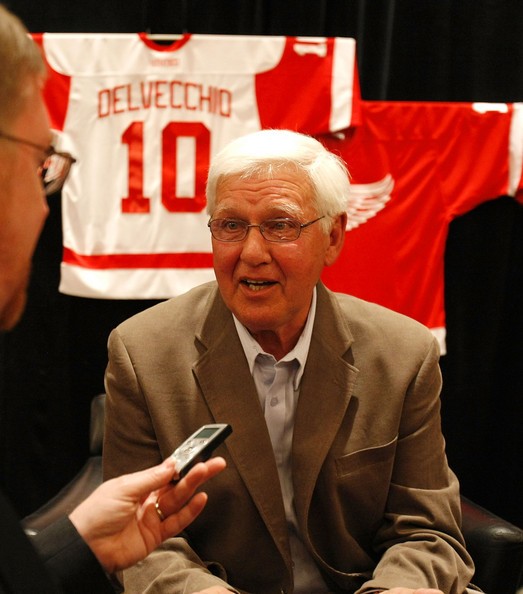
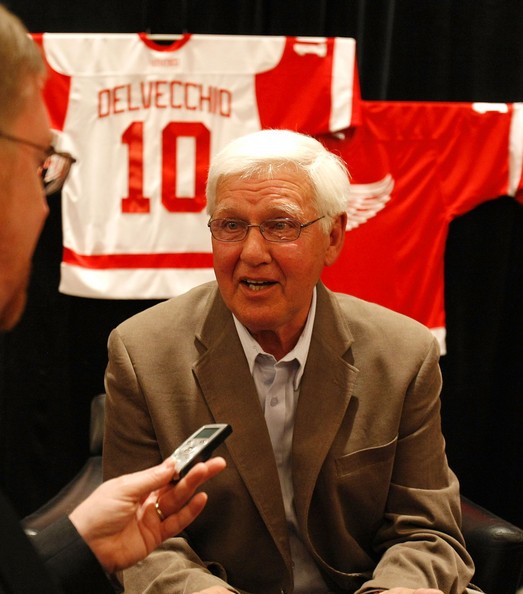

ALBANY, N.Y. – The University at Albany field hockey head coach Phil Sykes has announced the hiring of recent graduate Isabella Del Vecchio as an assistant coach.
“We are very excited to be adding Isabella Del Vecchio as an assistant coach,” said Sykes. “She was a strong player for us and, more importantly, a really great teammate and leader. I think she will add a lot to our staff.”
Del Vecchio returns to the Great Danes after graduating with her Bachelor of Science in Human Biology in May 2025. While a student-athlete, she was an active member of the Student-Athletes Advisory Committee and the Hidden Opponent, a campus organization meant to spread awareness for student-athlete mental health.
“I am very excited to become a part of the University at Albany coaching staff,” said Del Vecchio. “I have loved being a player on the team these past four years, and I am grateful for the opportunity to coach for such a great program. I would like to say thank you to Phil [Sykes] and [Andy Thornton] for the chance to work with [them]. I look forward to the upcoming season.”
As a student-athlete, Del Vecchio was a member of the Great Danes’ field hockey team for four years. The Somers, N.Y. native regularly competed for UAlbany with 59 total appearances and 22 starts. She scored her first collegiate goal as a sophomore and followed with seven goals as a junior. Over the last two years of her career, she played in all but one game.
Outside of her time as a Great Dane, Del Vecchio spent her time with field hockey camps of all ages. Since June 2021, she has coached for New York Hockey Club while taking advantage of additional volunteer opportunities with Guilderland Elementary School and UAlbany’s Field Hockey Youth Day. In addition to field hockey, Del Vecchio was a counselor for the YMCA and an MRI scheduler for the Bone and Joint Center.
Keep up with all of the latest news, highlights, and insights on UAlbany field hockey by following the team on X, Instagram, and Facebook.
Health
Iowa Department of Education awards over $2 million in therapeutic classroom grants to 8 …
The Iowa Department of Education today awarded over $2 million in competitive grants to eight school districts to establish therapeutic classrooms for learners whose emotional or behavioral needs impact their ability to be successful in their learning environment. “Therapeutic classrooms across Iowa provide vibrant, safe and healthy learning environments that best support students’ individual cognitive […]
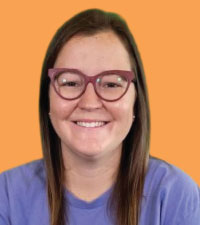
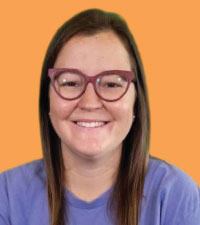

The Iowa Department of Education today awarded over $2 million in competitive grants to eight school districts to establish therapeutic classrooms for learners whose emotional or behavioral needs impact their ability to be successful in their learning environment.
“Therapeutic classrooms across Iowa provide vibrant, safe and healthy learning environments that best support students’ individual cognitive and behavioral needs,” said Iowa Department of Education Director McKenzie Snow. “We commend this year’s awardees and their community partners for their leadership and commitment to modeling best practices in skill building, stress and trauma coping, mental health treatment, and crisis prevention and intervention.”
The districts awarded a Therapeutic Classroom Incentive Grant for the 2025-26 school year are:
- Bondurant-Farrar CSD
- Cedar Rapids CSD
- Cherokee CSD
- Davenport CSD
- Durant CSD
- Keokuk CSD
- Pella CSD
- Spencer CSD
The Therapeutic Classroom Incentive Grant was established through state legislation signed into law in 2020 and is part of a statewide effort to increase mental health supports for children, youth and families. Now in its fifth round of funding, the awardees may use the grants to establish new classrooms or enhance critical components into current classrooms or programs that are being developed as therapeutic classrooms. Therapeutic supports include such things as skill building, support to cope with stress and trauma, mental health treatment and crisis intervention and follow-up.
In determining awards, priority was given to competitive district applicants that had applied previously and not received an award and to new district applicants that scored competitively. Additional consideration was given to ensure representation across small, medium and large districts. Applicants collaborating with other agencies to provide the therapeutic classrooms across Iowa’s Behavioral Health Districts were also prioritized.
Proposals submitted by the eight awarded districts will serve over 150 pre-K through grade 12 students, establish 17 new therapeutic classrooms and will expand mental health supports for youth across eight counties located in five of the state’s Behavioral Health Districts.
Grants will be distributed this fall for district implementation during the 2025-26 school year.
More information about Therapeutic Classroom Incentive Grants is available on the Iowa Department of Education’s website.


Health
How a young Minnesota dancer stepped through mental health hurdles
How a young Minnesota dancer stepped through mental health hurdles – CBS Minnesota Watch CBS News Jennifer Mayerle shares what it took to help a young dancer get back his zest for life. View CBS News In Be the first to know Get browser notifications for breaking news, live events, and exclusive reporting. Not Now […]
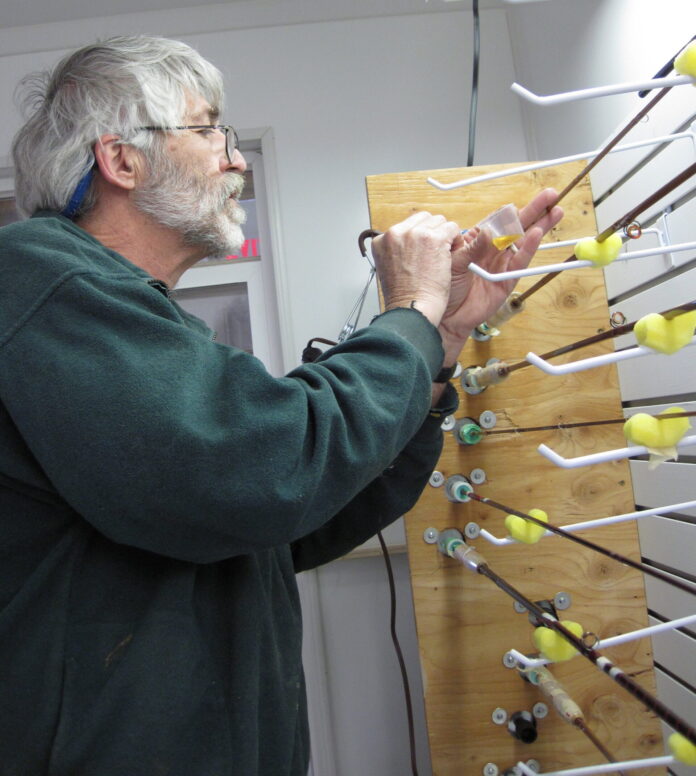

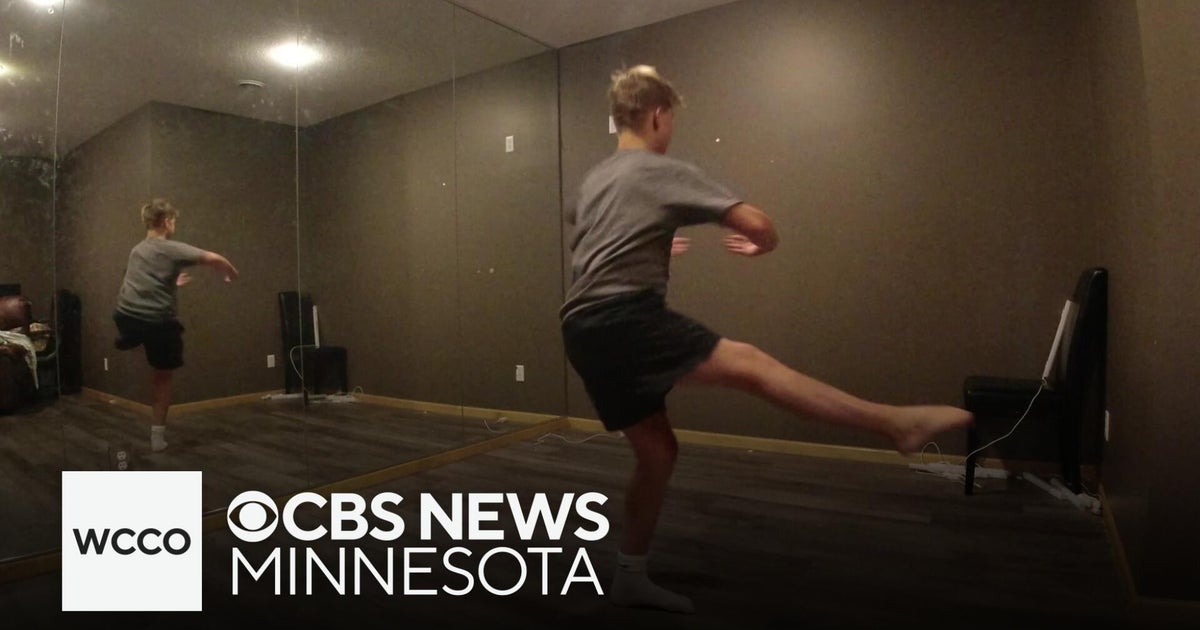
Watch CBS News
Be the first to know
Get browser notifications for breaking news, live events, and exclusive reporting.
Health
'Dr. Marcy' Gets the Gold
Newswise — In December, Simone Biles posted a photo with Marcia Faustin, MD’13, FAAFP, to her millions of Instagram followers, offering thanks for “keeping me sane” amid the excitement and pressure of the 2024 Paris Olympics. (Biles won three gold medals.) Biles’ teammate Sunisa “Suni” Lee called Faustin a “saving angel” for recognizing that the […]



Newswise — In December, Simone Biles posted a photo with Marcia Faustin, MD’13, FAAFP, to her millions of Instagram followers, offering thanks for “keeping me sane” amid the excitement and pressure of the 2024 Paris Olympics. (Biles won three gold medals.)
Biles’ teammate Sunisa “Suni” Lee called Faustin a “saving angel” for recognizing that the sudden inflammation in her body in February 2023 wasn’t allergies, but a serious kidney issue. With Faustin’s guidance, Lee navigated her health condition and went on to nab a gold medal in Paris.
These are just a few of the many praises the elite gymnasts have given Faustin — aka “Dr. Marcy”— since she became co-head physician for the USA Gymnastics women’s national team in 2019.
Since then, Faustin has developed close bonds with the athletes at practice, camps, competitions and at the past two Summer Olympics, in Tokyo and Paris.
Spectators might assume her role mostly involves treating sprains and pain, but the job is also that of a confidant who helps some of the most-watched competitors on Earth maintain their mental health.
“To watch those ladies win gold medals, and to work hard and overcome their challenges, it makes my soul smile,” Faustin said. “I get teary-eyed because I know how much each of them overcame on their journey to success.”
Career springboard started at Pritzker
Faustin, a gymnast and volleyball player during her high school years in Orland Park, expanded her athletic resume as a track and field star at Loyola University Chicago, where she initially intended to major in nursing.
But when the nursing program’s clinical rotations calendar didn’t align with her athletic commitments, she set her sights on medical school.
After earning a premed degree, Faustin came to the Pritzker School of Medicine on scholarship and focused on family and sports medicine.
“I was surrounded by awesome classmates and received an amazing education,” Faustin said.
Her 88-student class was tight-knit; in their free time, they played flag football and broomball and ran races across campus. Many of her classmates remain close friends, and one is now her husband, Toussaint Mears-Clarke, MD’13, MBA, FAAFP, a family medicine physician and obstetrician.
Faustin’s medical school mentor, psychiatrist Elizabeth Kieff, MD’03, Pritzker’s former director of wellness, spoke at their wedding.
Physical and emotional care for athletes
Through a University of Chicago Medicine connection, Faustin eagerly took an opportunity to volunteer at USA Gymnastics competitions. That effort led to her current role with the organization, a job she shares with New York-based Ellen Casey, MD, FACSM, FAAPMR.
The work is collaborative. Sometimes Faustin needs to bring in specialists like orthopaedic surgeons or physical therapists, but her main function is to take what she calls a “bio-psycho-social” approach to the athletes’ care.
That means treating their muscular and skeletal issues, as well as understanding their mental health and how social surroundings can impact it.
“There are a lot of external influences they face,” said Faustin, who encouraged the Olympic gymnasts to minimize or avoid social media while in Paris and Tokyo, establishing “no-phone zones” where they could play cards and socialize. “We just stay focused.”
Faustin praises USA gymnasts for being grateful, hardworking, phenomenal competitors — but she has equal respect for the collegiate athletes and everyday people she treats.
“I find as much joy in helping a patient who now can go dance at their granddaughter’s bat mitzvah,” she said.
Supporting a higher standard
Faustin’s arrival to the team came after a turbulent and transformative time. In 2016, an investigation by The Indianapolis Star revealed that top executives at USA Gymnastics failed to alert authorities to many allegations of sexual abuse by coaches.
Hundreds of gymnasts came forward to say they were sexually assaulted or abused by members of the USA Gymnastics staff and medical team. Among the offenders: team doctor Larry Nassar, who pleaded guilty to federal and state charges and was sentenced to 100 years in prison.
Since then, USA Gymnastics has made many changes and efforts to rebuild trust, including new safety policies and procedures, along with the addition of a chief of athlete health and wellness position.
The most important aspect of caring for patients of all ages, levels and backgrounds is building trust. “It goes both ways; patients need to trust the physicians and vice versa,” she said. “It’s critical to have trust so we can help them make collaborative decisions when the world is watching and do what’s best for them, in the present and for their future.”
Faustin understands the influence — and visibility — of her role is more critical than ever.
“It’s a blessing to be their physician and to have them trust me with vulnerable information that they might not even share with their significant other or family members,” she said. “I really hold that trust to a high standard.”
A doctor for all sports, seasons
Outside of her commitments traveling with USA Gymnastics, which total about 40 days annually, the Sacramento-based Faustin is an assistant clinical professor at the University of California, Davis, where she is co-head physician for the school’s 25 sports teams.
Never content to rest on the sidelines, she’s also the team doctor for the Sacramento Republic FC soccer team.
“It’s a busy life,” Faustin said. “But I love the people and the relationships I get to develop.”
As one of only a handful of Black female sports medicine doctors nationwide, Faustin knows her representation is important. Less than 3% of all U.S. physicians are Black women, and even fewer are in sports medicine, she said.
While her schedule doesn’t leave time for much else, Faustin did speak as part of Pritzker’s Bowman Society Lecture Series in January. The topic: addressing mental health in athletes.
“I’m grateful to have gone to Pritzker, and it’s given me a great foundation to practice medicine,” she said. “So, I want to give back.”
For photos and more information, view the original article on the UChicago website.
-

 Motorsports3 weeks ago
Motorsports3 weeks agoNASCAR Weekend Preview: Autódromo Hermanos Rodríguez
-
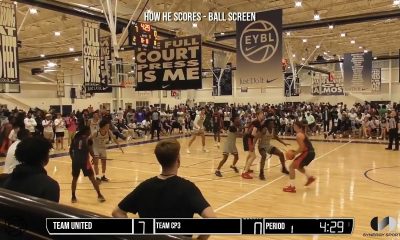
 College Sports3 weeks ago
College Sports3 weeks agoIU basketball recruiting
-

 Social Media3 weeks ago
Social Media3 weeks agoPune Athletes Make Global Mark at IRONMAN Hamburg and Brazil 2025
-
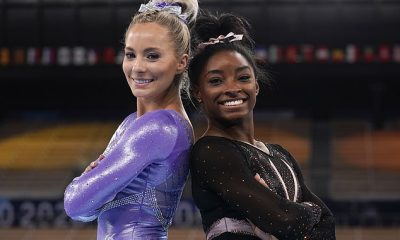
 Health3 weeks ago
Health3 weeks agoGymnast MyKayla Skinner Claims Simone Biles 'Belittled and Ostracized' Her amid Riley …
-

 Motorsports3 weeks ago
Motorsports3 weeks agoNASCAR Race Today: Mexico City start times, schedule and how to watch live on TV
-

 Motorsports3 weeks ago
Motorsports3 weeks agoNASCAR in Mexico City: Where to watch, start time, stream, lineup, race preview for inaugural Viva Mexico 250
-

 College Sports7 days ago
College Sports7 days agoWAC to Rebrand to UAC, Add Five New Members in 2026
-

 Health3 weeks ago
Health3 weeks agoChicago Sky receive unfortunate reaction to 'mental health' statement with Angel Reese
-

 College Sports3 weeks ago
College Sports3 weeks agoLivvy Dunne honors boyfriend Paul Skenes with twist on LSU jersey
-

 High School Sports3 weeks ago
High School Sports3 weeks agoNew Bedford top stories

















 Louisville survive Oregon State’s 9th-inning comeback surge
Louisville survive Oregon State’s 9th-inning comeback surge  | ESPN College Baseball
| ESPN College Baseball















